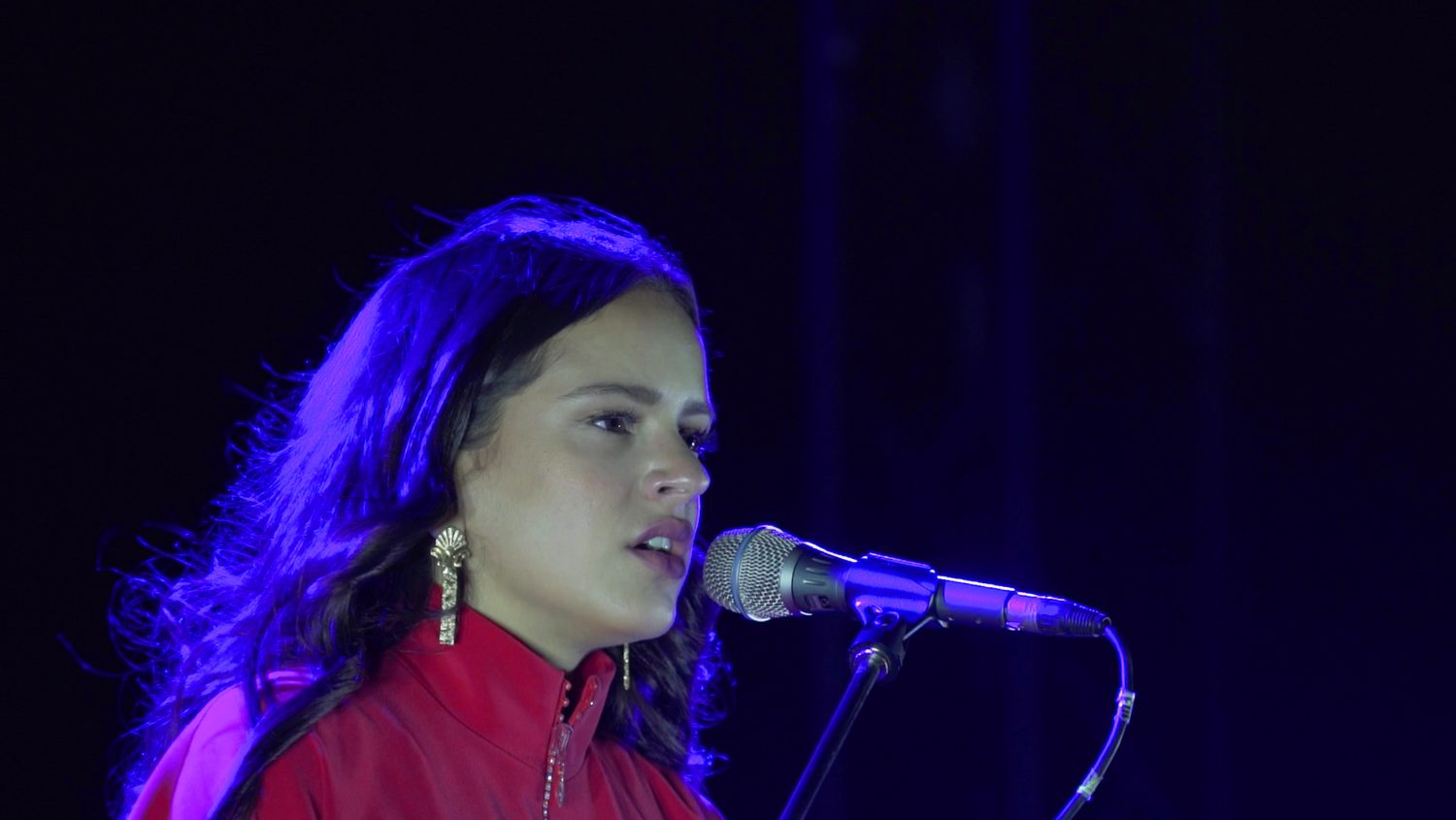Rosalía A Sensation But Is She Latinx?

Rosalía A Sensation But Is She Latinx?
Eric Duran reports for NBC that when some publications called the Latin music star Rosalía, it generated criticism from those who said that wasn’t the case because she is from Spain.
“The MTV Video Music Awards [featured] more Latin artists than ever, with performances by Camila Cabello, J Balvin, Ozuna and Bad Bunny. But breakout artist Rosalía is garnering a lot of buzz.
The ‘Con Altura’ singer, who’s nominated for Best Latin Video, Best Choreography and Best New Artist, is undoubtedly one of this year’s standout artists. Rosalía’s 2018 album ‘El Mal Querer’ was praised by critics for its blend of flamenco and pop, earning the Spanish singer two Latin Grammys and support from artists across the music industry, including Billie Eilish and Pharrell.
But beyond her music, Rosalía has sparked online conversation among music fans on the difference between being a Latin music star and being Latinx.
“Vogue Mexico” featured Rosalía on its August 2019 cover, naming the singer among 25 other “Latino” artists. The cover drew criticism from fans about marketing a European singer — Rosalía is from Spain — as “Latinx.”
Latinx is a gender-neutral term used increasingly by young U.S. Latinos to describe someone who is from or has ancestry in Latin America, such as Mexico, Colombia, Puerto Rico and even Brazil (whose national language is Portuguese). Hispanic, however, describes someone of Spanish-speaking descent, which includes people from Spain.
Rosalía, a Barcelona native, can be considered Hispanic because of her Spanish language (although the language in her region is technically Catalan). And though Spain and Latin America share many similarities in culture and language, the singer is not Latinx by definition.
Since the album’s release, Rosalía has collaborated with Latin musicians such as J Balvin and Ozuna, releasing reggaeton inspired songs “Con Altura” and “Yo x Ti, Tu x Mi”. The songs have cemented her presence in Latin music and even earned her a spot on President Barack Obama’s summer playlist. But the singer’s popularity has also sparked debate among music fans
In the Billboard series “Growing Up Latino,” Rosalía explained she does “feel Latina’ because of Latin America’s influence in flamenco music, a genre she studied heavily in school. But the interview’sreception online ranged from fandom to criticism of the artist’s inclusion in the series.
Leila Cobo, director of Latin content and programming at Billboard, told NBC News that the series, which has featured other Spanish artists like Alvaro Soler, is about celebrating Latin music and culture, regardless of where the artists are from.
“If someone doing [Growing Up Latino] is from Spain or anywhere, it’s all part of our celebration … I don’t think music is exclusionary,” Cobo said. “Yes, she’s not ‘Latin’ in the sense that she’s not from a Latin American country, but her music falls under that big umbrella of what we call ‘Latin music.’”
Billboard defines Latin music as any song whose lyrics are at least 51 percent in Spanish.
Camilo Landau, a musician and president of the Recording Academy’s San Francisco chapter, says regional music across Latin America has always had a back-and-forth influence with Spain, noting the success of other Spanish artists such as Julio Iglesias and Enrique Iglesias.
“There’s heavy Latin influence in Spanish music — the use of cajón in flamenco music, for example. That instrument was from Peru and introduced back to Spain, and into flamenco music. It’s a direct influence from Latin American music on Spanish music,” Landau says. “The obvious thing that ties them together is the common language, which is Spanish.”
But Landau, who studies and performs Latin music, says new influences from genres such as trap and hip-hop are redefining what it means to be a part of the genre.
“Trap, for example, is incredibly popular all across Latin America and Spain, but musically, it’s essentially American beats with Spanish and English language. For instance, Cardi B, (of Dominican and Trinidadian descent) is arguably a popular Latin musician,” Landau said. “Her big hit was ‘I Like It’ and she sings only English on it, but features other Latin artists.”
Rosalía may not check the Latinx box, but as Cobo and Landau point out, she’s clearly part of the larger movement of artists comprising Latin music as we know it.”














